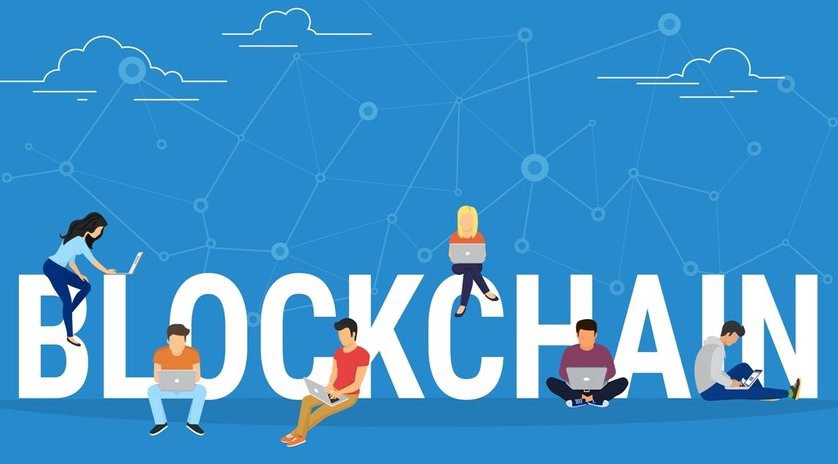MakerDAO Is Offering Free Basic Blockchain Courses In Brazil
Almost 120 students, aged 14-24, are now coming together every week in Rio de Janeiro for free courses about computer programming, financial literacy and blockchain technology.
Erick Baumgartner, the coordinator of World Bank research field, said that he went to three high schools in the Pavuna district for recruiting students for the nine-month program, starting from May this year.
“Even for classes that are happening right outside their houses, we’ve already had two days when they couldn’t come to class because of police operations,” Baumgartner said. “When shooting starts, people can’t go out of their houses.”
For serving this marginalized community of aspiring developers, the World Bank collaborated with a range of organizations, including Banco Maré, MakerDAO, Federal University of Rio de Janeiro, and Blockchain Academy, the Brazilian education start-up.
Only about half of the total number of students passed the computer literacy test for taking the blockchain-based course. These students will be learning how to make Ethereum-based smart contracts, basics of web programming and some bit about Hyperledger.
“The final purpose of all these efforts is to give them a real opportunity to be hired,” said Rosine Kadamani, co-founder of Blockchain Academy. “By the end of the training program, students are going to participate in a hackathon with MakerDAO, to have the opportunity to create something more concrete, something that could be helpful for themselves.”
DeFi-lanthropy
MakerDAO claimed that its goals for the program are selfless and public-spirited. MakerDAO’s head of business development in Latin America, Nadia Alvarez, said that she hopes for students to learn about “solutions” beyond traditional financial institutions:
“What we want is to give them information to develop their curiosity around the blockchain and other financial options they have.”
Rosine Kadamani added that a program comprises of versatile education, which includes the risk of decentralized finance (DeFi), in order to make students decide for themselves if crypto loans match their needs.
A 17-year-old student, Luiz Felipe Rangel Silva said that they primarily use cash, even though his family has a bank account. He is not aware of concepts like payment apps and blockchain, except for the brief mentions of Bitcoin in the news.
“I’m always interested in learning and being better prepared [for jobs], also learning how to make websites and software,” he added, saying that students at his school were not allowed to use the computer lab in order to retrench theft, therefore, this course will be his first attempt at learning programming.
World Bank’s Baumgartner and MakerDAO’s Alvarez both claimed this initiative to be pilot, hoping to expand it next year if it is to help the current participants gain job opportunities.
Kadamani said that the initiative is looking to partner with companies from the crypto industry, who are looking to hire or contribute to the program curriculum.
As to why MakerDAO sponsored the program, Alvarez explained:
“It’s an incredible opportunity to create new solutions thinking of the actual needs of people in different countries.”
Stay informed with daily updates from Blockchain Magazine on Google News. Click here to follow us and mark as favorite: [Blockchain Magazine on Google News].
Get Blockchain Insights In Inbox
Stay ahead of the curve with expert analysis and market updates.
latest from tech
Disclaimer: Any post shared by a third-party agency are sponsored and Blockchain Magazine has no views on any such posts. The views and opinions expressed in this post are those of the clients and do not necessarily reflect the official policy or position of Blockchain Magazine. The information provided in this post is for informational purposes only and should not be considered as financial, investment, or professional advice. Blockchain Magazine does not endorse or promote any specific products, services, or companies mentioned in this posts. Readers are encouraged to conduct their own research and consult with a qualified professional before making any financial decisions. The featured image used is just a creative depiction of the title and it does not intend to hurt sentiments of any person or institution. If it hurts anyone sentiments, please do not hesitate to reach out to Blockchain Magazine.

 Bitcoin
Bitcoin  Ethereum
Ethereum  XRP
XRP  Tether
Tether  Solana
Solana  USDC
USDC  Dogecoin
Dogecoin  Cardano
Cardano  Lido Staked Ether
Lido Staked Ether  TRON
TRON  Chainlink
Chainlink  Wrapped Bitcoin
Wrapped Bitcoin  Sui
Sui  Wrapped stETH
Wrapped stETH  Avalanche
Avalanche  Stellar
Stellar  Hedera
Hedera  Toncoin
Toncoin  Shiba Inu
Shiba Inu  LEO Token
LEO Token  Hyperliquid
Hyperliquid  WETH
WETH  Litecoin
Litecoin  Bitget Token
Bitget Token  Polkadot
Polkadot  USDS
USDS  Bitcoin Cash
Bitcoin Cash  Ethena USDe
Ethena USDe  Wrapped eETH
Wrapped eETH  MANTRA
MANTRA  Uniswap
Uniswap  Ondo
Ondo  Pepe
Pepe  Monero
Monero  NEAR Protocol
NEAR Protocol  Aave
Aave  WhiteBIT Coin
WhiteBIT Coin  Mantle
Mantle  Aptos
Aptos  Official Trump
Official Trump  Internet Computer
Internet Computer  Dai
Dai  Ethereum Classic
Ethereum Classic  Bittensor
Bittensor  Cronos
Cronos  OKB
OKB  POL (ex-MATIC)
POL (ex-MATIC)  Gate
Gate 




